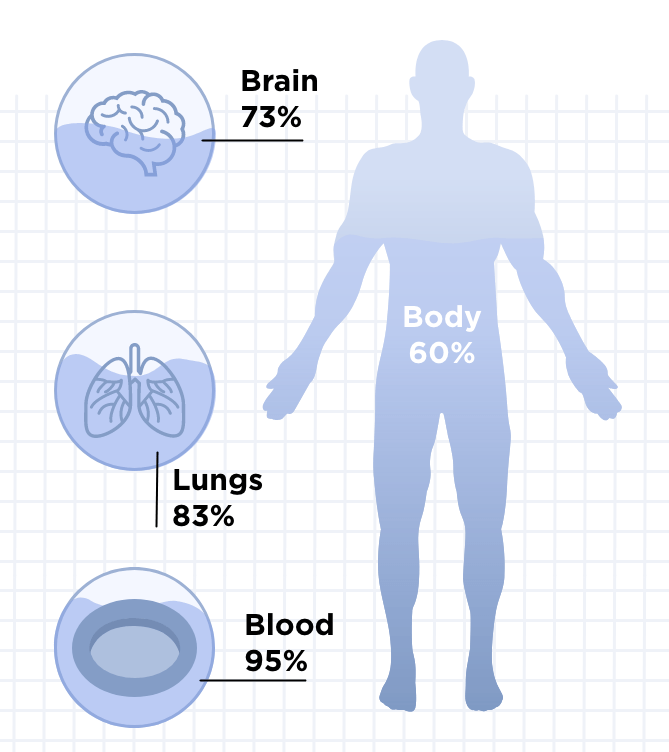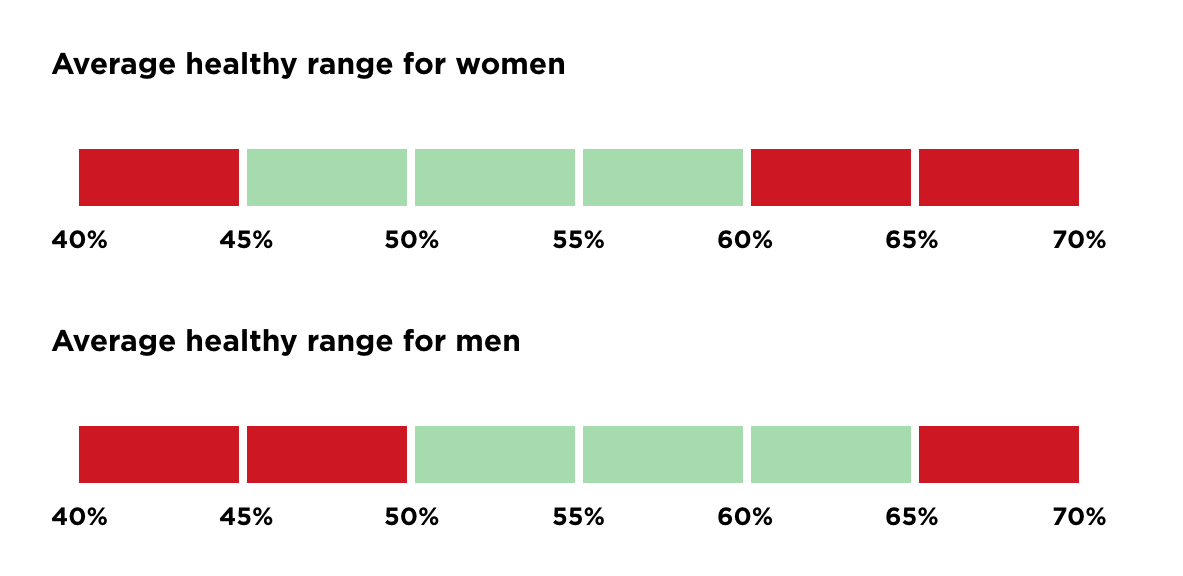Body water percentage can be measured using several methods. For example, in a method called dilution, or hydrometry, the person being measured provides body fluid samples in a clinical setting. These samples are analyzed for isotope levels to calculate total body water and body fat mass. Another method, bioelectrical impedance analysis, a feature available in some smart scales, can measure the percentage of water in your body as part of your total body composition.
If you want to estimate your body water, you may want to try the Watson formula, reported in a 1980 study entitled “Total Body Water Volumes for Adult Males and Females Estimated From Simple Anthropometric Measurements” in the American Journal of Clinical Nutrition.
Watson formula for men
2.447 – (0.09145 x age) + (0.1074 x height in centimeters) + (0.3362 x weight in kilograms) = total body water (TBW) in liters
Watson formula for women
–2.097 + (0.1069 x height in centimeters) + (0.2466 x weight in kilograms) = total body weight (TBW) in liters
You can find many body water calculators that use this method. Although many other formulas are available, some studies, such as a 2001 report in Nephrology Dialysis Transplantation, have found that the Watson formula is the most accurate.







